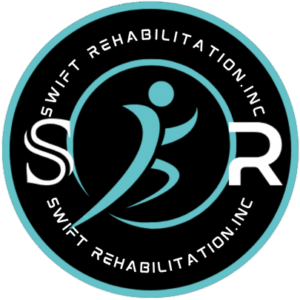Physical therapy is much more than simple rehabilitation-it is a safe, non-invasive, and highly effective approach to reducing pain, restoring movement, and improving overall well-being. It is designed to help individuals of all ages regain strength, flexibility, and confidence in their daily lives. Whether you are recovering from an injury, managing a chronic health condition, or looking to enhance your physical performance, professional physical therapy provides tailored solutions that address your unique needs and help you achieve lasting results. In this article, we will dive into the key benefits of physical therapy, explain how it works, and show why it should be an essential part of any comprehensive healthcare plan.

Pain Relief and Management Through Physical Therapy
Pain can interfere with mobility, daily routines, and overall quality of life. Physical therapy addresses pain naturally and effectively, providing relief while minimizing the reliance on medications.
- Reduces Pain Naturally – Through targeted exercises, hands-on techniques, and methods like heat or cold therapy, physical therapy alleviates discomfort safely and effectively.
- Addresses the Root Cause – Therapists focus on identifying and treating the underlying sources of pain, ensuring long-term relief rather than simply masking symptoms.
- Improves Daily Comfort – By reducing pain, therapy makes everyday activities such as walking, sitting, or bending easier and more comfortable.
- Speeds Up Recovery – Physical therapy helps accelerate healing, decrease inflammation, and restore movement and function efficiently.
These strategies empower individuals to regain control over their daily activities, improve mobility, and maintain independence, highlighting one of the key benefits of physical therapy.
Physical Therapy: Improving Mobility and Function
Limited mobility can impact independence, daily activities, and overall quality of life. Physical therapy focuses on restoring movement, strength, and flexibility, enabling patients to perform daily tasks with greater ease and confidence.
- Restores Strength and Flexibility – Tailored exercise programs help rebuild muscle strength, enhance joint flexibility, and restore a full range of motion.
- Enhances Independence – Better mobility allows individuals to climb stairs, lift objects, and engage in physical activity without needing assistance.
- Promotes an Active Lifestyle – Therapy encourages consistent movement, supporting overall health, fitness, and long-term well-being.
- Reduces Stiffness – Regular therapy keeps muscles and joints flexible, promoting smooth, comfortable motion and reducing discomfort.
Physical Therapy: Early Detection & Surgery Prevention
By addressing issues early and strengthening the body, therapy supports long-term health and functional independence.
I. Prevents Early Issues
Addressing musculoskeletal problems promptly allows physical therapy to correct underlying issues before they develop into more severe or chronic conditions, helping patients maintain long-term health.
II. Strengthens Targeted Areas
Carefully designed exercises focus on specific muscles and joints, improving support, reducing strain, and enhancing overall stability and function.
III. Reduces Risks
By opting for non-surgical care, patients can avoid potential complications, infections, or lengthy recovery periods that often accompany invasive procedures.
IV. Provides Non-Surgical Solutions
Regular therapy not only relieves pain and restores movement but can also eliminate the need for surgery in many cases, offering a safe and effective alternative for long-term recovery.

Managing Chronic Conditions With Physical Therapy
Chronic health issues like arthritis, diabetes, and cardiovascular conditions can impact mobility, energy, and overall quality of life. Physical therapy provides effective strategies to manage these conditions, improve daily function, and support long-term wellness.
- Supports Long-Term Health – Regular therapy sessions help reduce pain, boost energy, and promote overall well-being.
- Personalized Programs – Therapists create customized exercise plans designed to manage symptoms and slow the progression of chronic illnesses.
- Enhances Daily Function – Patients experience increased stamina and improved ability to carry out daily activities with ease.
- Boosts Quality of Life – Strength, mobility, and confidence are improved, allowing individuals to maintain independence despite ongoing health challenges.
Through consistent care, physical therapy not only enhances daily performance but also supports long-term health, highlighting one of the most important benefits of physical therapy.
Better Balance and Fall Prevention with Physical Therapy
Falls are a major concern, particularly for older adults, and can lead to serious injuries. Physical therapy helps improve stability, strengthen coordination, and promote safe, confident movement.
- Builds Stability and Coordination – Targeted exercises strengthen core and lower-body muscles, improving balance and overall coordination.
- Lowers Injury Risk – Enhanced stability reduces the chances of falls, fractures, and other accidents.
- Promotes Confidence – Improved balance helps individuals move safely around their homes and communities.
- Supports Healthy Aging – Consistent therapy helps maintain mobility, allowing older adults to stay active, independent, and engaged for longer.
By improving balance and coordination, physical therapy empowers individuals to move confidently, stay active, and live a safer, healthier lifestyle, demonstrating another key benefit of physical therapy.
Physical Therapy – Supporting Neurological Conditions
Neurological disorders like stroke, Parkinson’s disease, or multiple sclerosis can significantly impact motor function and daily independence. Physical therapy offers targeted interventions to help restore movement, strength, and confidence, improving overall quality of life.
- Stroke Recovery – Therapy supports the restoration of coordination, strength, and motor skills, helping patients recover more efficiently.
- Assists with Parkinson’s and MS – Customized exercises help maintain mobility, reduce stiffness, and improve overall function.
- Tailored Interventions – Personalized therapy plans focus on specific deficits, promoting independence and functional abilities.
- Improves Daily Life – Enhanced motor skills enable patients to perform everyday activities safely and confidently.
Through specialized care, physical therapy empowers individuals with neurological conditions to regain independence, move with confidence, and live more comfortably, highlighting another significant benefit of physical therapy.

Conclusion
The benefits of physical therapy are wide-ranging, from relieving pain and enhancing mobility to preventing surgery, managing chronic conditions, improving balance, and supporting neurological health. Making physical therapy a regular part of your healthcare routine can help you move more freely, minimize pain, prevent injuries, and maintain a better overall quality of life.
For professional, personalized physical therapy care, Swift Rehabilitation offers expert services designed to meet your individual needs. Their experienced team helps you recover efficiently, regain independence, and enjoy a healthier, more active lifestyle.




